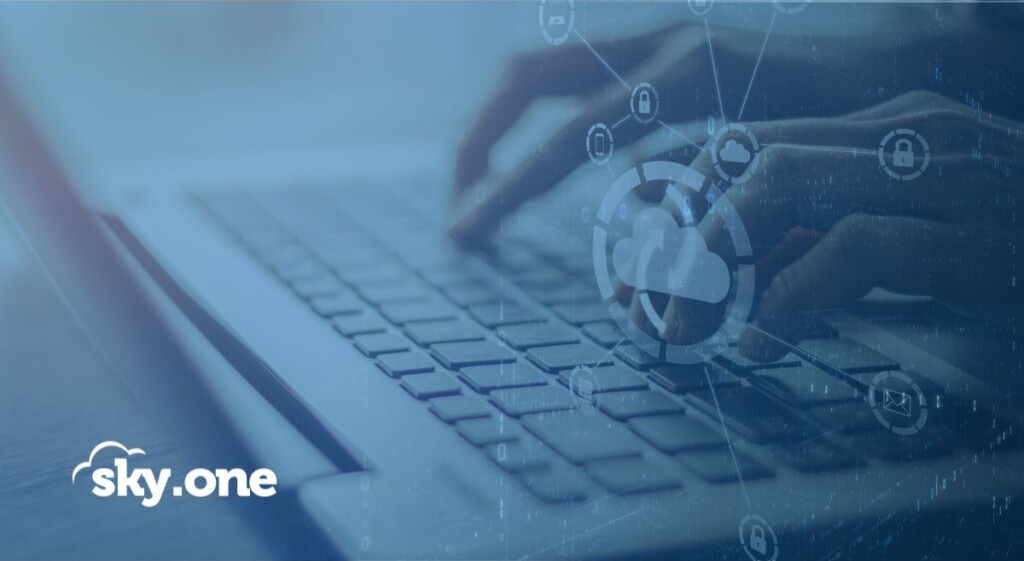According to research carried out by IDC, the year 2022 will be marked by the continuity of cyber attacks, especially in the Ransomware modality . In 2021, global data shows that 38% of companies suffered some Ransomware attack.
In this context where data security becomes an even more critical concern for companies, migration to the cloud emerges as one of the possible solutions to be considered as a way to mitigate these risks .
Information security has always been a sore point and some myths have been created in relation to responsibilities with the guarantee of data and services hosted in the cloud.
Read until the end and ask your questions about cloud security!
See too:
Investing in Cloud Computing Security
Myth: On-premise frameworks are more secure than on-cloud frameworks
On-premise structures are those characterized by the physical data storage format, in which case the information is on servers within the company.
Because they are local and structured, on-premises failures and risks are commonly caused by inappropriate behavior by users or administrators of the solutions, as well as by the lack of redundancy and slower backups.
On the other hand, companies that have IT partners specialized in the cloud benefit from a team fully dedicated to preventing attacks and continuous monitoring of possible threats , working to develop extra layers of protection and review processes and methodologies to guarantee the security of your customers.
In addition, on cloud security, research published by Gartner on February 4, 2021 pointed out that:
“Cloud computing offers the scalability and affordability needed to host security services that can reliably and conveniently support a global cybersecurity fabric. Offering technology as a service means that the vendor is responsible for routine maintenance and upgrades. The corporate cybersecurity team can focus on policy maintenance while letting the vendor worry about the plumbing. Gartner research indicates that 80% of organizations expect to use security as a service by 2023.”
Realize that the investment was too big to arrive at a structure with so many features. This was important to consolidate the idea that the cloud is indeed a safe environment. Proof of this are the companies that have already migrated and others that have emerged from the use of the cloud computing structure.
Learn more about data security and LGPD by listening to episode #5 of Sky.Cast , Skyone's podcast!
Myth: Security, a cloud provider responsibility
Perhaps with the large infrastructure and set of services related to information security offered by cloud computing providers, many customers have agreed to understand that the responsibility for implementing and maintaining security is the responsibility of the service provider, which is a big mistake.
Safety is a responsibility shared by everyone. The service provider offers all the necessary structure, but knowing the needs and how the technology should be used is up to the customers.
It is worth noting that the application of security policies and processes can completely impact operations. It is enough, for example, to restrict access to ports that communicate with the outside world. This type of information is part of the technology architecture used by the customer.
Another false idea about the use of security applied to the cloud is related to the maintenance and training of the personnel involved . Again, the responsibility involves the customers. The vendor can and does offer the necessary support to ensure proper use of resources, but in the vast majority of cases this is offered as a service for which you will be charged.
Myth: Client architecture certified and compliant
Yet another misinterpretation by customers. There are two distinct scenarios: one thing is the cloud service provider having its infrastructure certified and in accordance with the main compliance standards; and another is for the client to own its architecture with the same controls and responsibilities.
Of course, migrating your operations to an environment that complies with the main security standards and compliance on the market already contributes to guaranteeing the architecture used by the client, but depending on the area of activity, specific certifications or standards need to be applied specifically to the architecture of the client. The vendor provides support to meet security requirements, but the customer is responsible.
How do you know if your business data is safe?
According to the Cloud Security Report , published in 2021, 64% of companies have data leakage as one of their biggest concerns about cloud security.
And, even if a good provider takes all the necessary precautions to ensure the security of the cloud, it is not possible to say that problems cannot happen at some point.
This happens not only in relation to the cloud. We have already followed news that hackers coordinated a ransomware cyberattack that affected almost 100 countries and managed to hijack data from gigantic companies. So nothing is completely failsafe.
The fact is that you cannot prevent all threats, but you can monitor them. And the first step is to use automated control systems that quickly detect irregular data patterns and signal that an intrusion is taking place.
When this notification occurs simultaneously, the enterprise can quickly and efficiently respond to the incident to stop the attack and minimize damage.
Cloud systems also usually have environmental protection through Firewalls and Security Groups, strong password requirement mechanisms, constant application of security updates to the operating system and isolation of the ERP environment from the most common attack vectors, among others. .
How to ensure a safe migration to the cloud?
It is important to note that the migration procedure requires more than simply uploading an app to the cloud and switching storage.
We know that without the right tools and procedures, applications can malfunction in the cloud, both technically and financially. That's why you need to enlist the help of cloud security experts.
At Skyone, we offer unlimited partner support through web or phone work orders. Our coverage model is 24/7 and ensures that the technical support team responds to incidents according to their criticality level and SLAs. Find out more !







